“There is no little pocket, situated outside of life, to which we could steal life’s provisions and squirrel them away. The life of this moment has no outside.”
I, Dirk, need to confess something: for as long as I can remember, I’ve been obsessed with time management. I’ve read all the important books, tried every possible tool, and even built my own systems to maximize productivity.
Recently, while enjoying a few relaxing days with Raquel in the stunning scenery of Switzerland, I started reading Four Thousand Weeks by Oliver Burkeman. A highly praised book that offers a radically different approach to productivity. Burkeman calls it “time management for mortals.”
The title comes from a simple but sobering fact: 4,000 weeks is roughly the length of the average human life. About 80 years.
His main message? Our lifetime is astonishingly limited, especially when compared to the infinite tasks, goals, and opportunities modern society constantly throws at us.
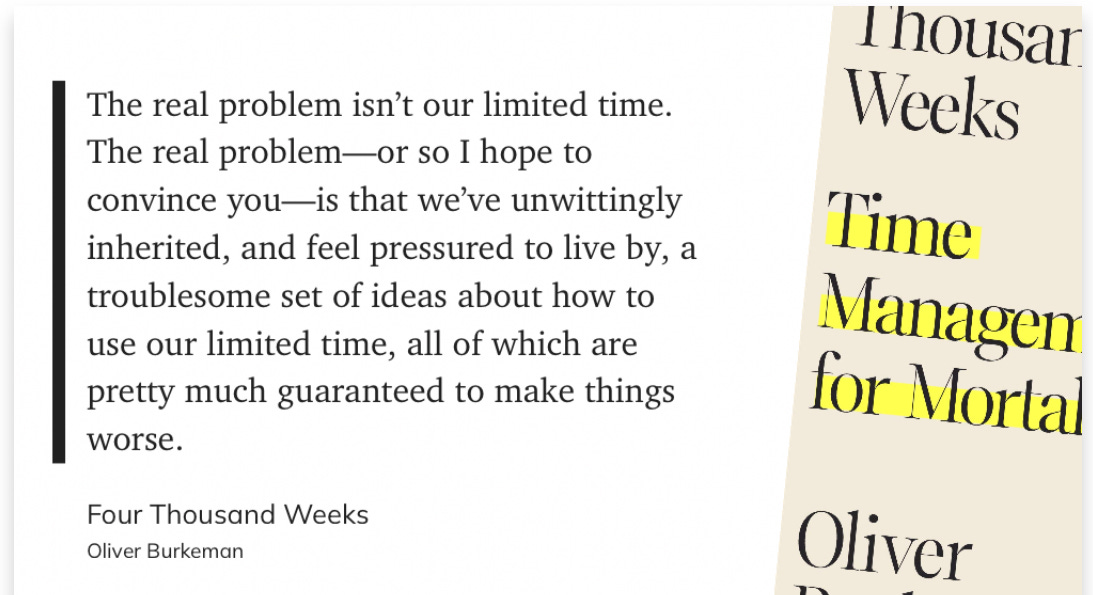
Have you ever noticed that the more time technology saves us, the busier we become?
We no longer spend hours on errands, meal prep, or waiting in lines. Shopping happens online, banks live in our pockets, and navigation apps guide every turn. Messages are instant, meetings and reminders run on autopilot, and even our ads arrive pre‑personalized.
Thanks to online shopping, microwave ovens, banking apps, AI assistants, instant travel services, and countless digital shortcuts, we’ve supposedly reclaimed significant chunks of our lives.
Yet with all this convenience, we’re not calmer, we’re more frazzled than ever.
We have all these convenient possibilities, but instead of feeling less stressed, we’re somehow more overwhelmed than ever.
Paradoxically, the more time we save, the more gets filled. Our calendars swell, our to-do lists expand, and true leisure becomes harder to find.
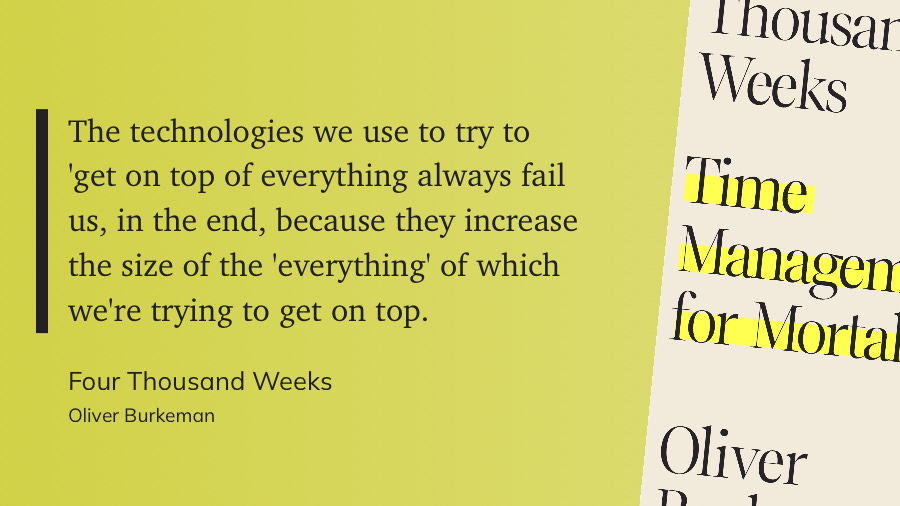
Burkeman explains this paradox brilliantly: traditional productivity promises control but delivers frustration. By endlessly optimizing, we chase an illusion of “doing it all,” ultimately losing sight of what truly matters.
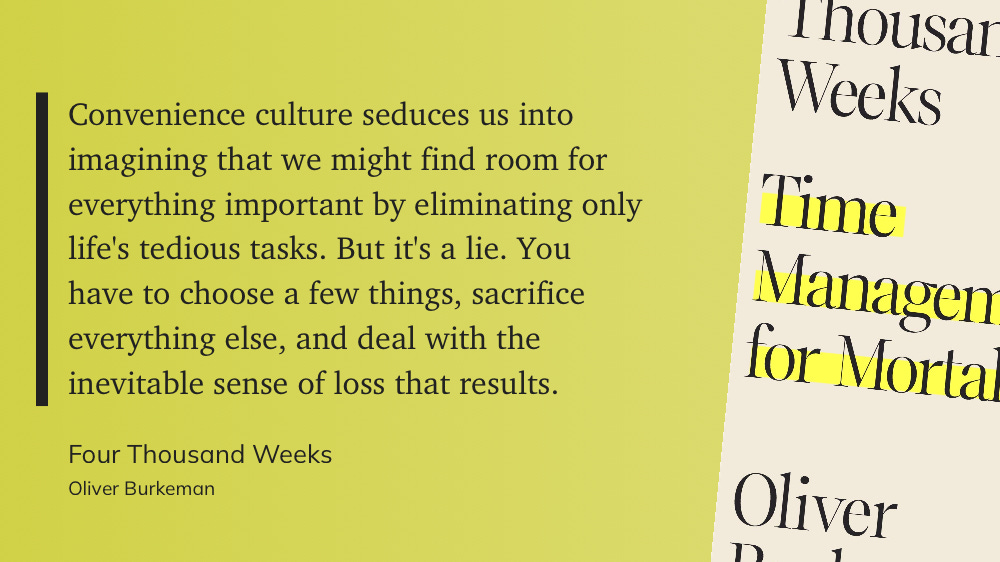
This book encourages us to embrace limitation rather than fight it.
The message is both liberating and humbling: we cannot do everything, and we don’t need to.
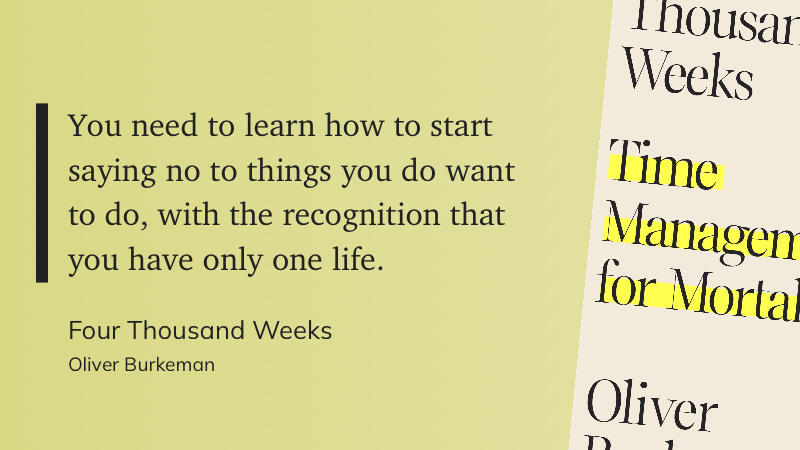
Burkeman also redefines what attention really means. He argues that what we give our attention to is our life:
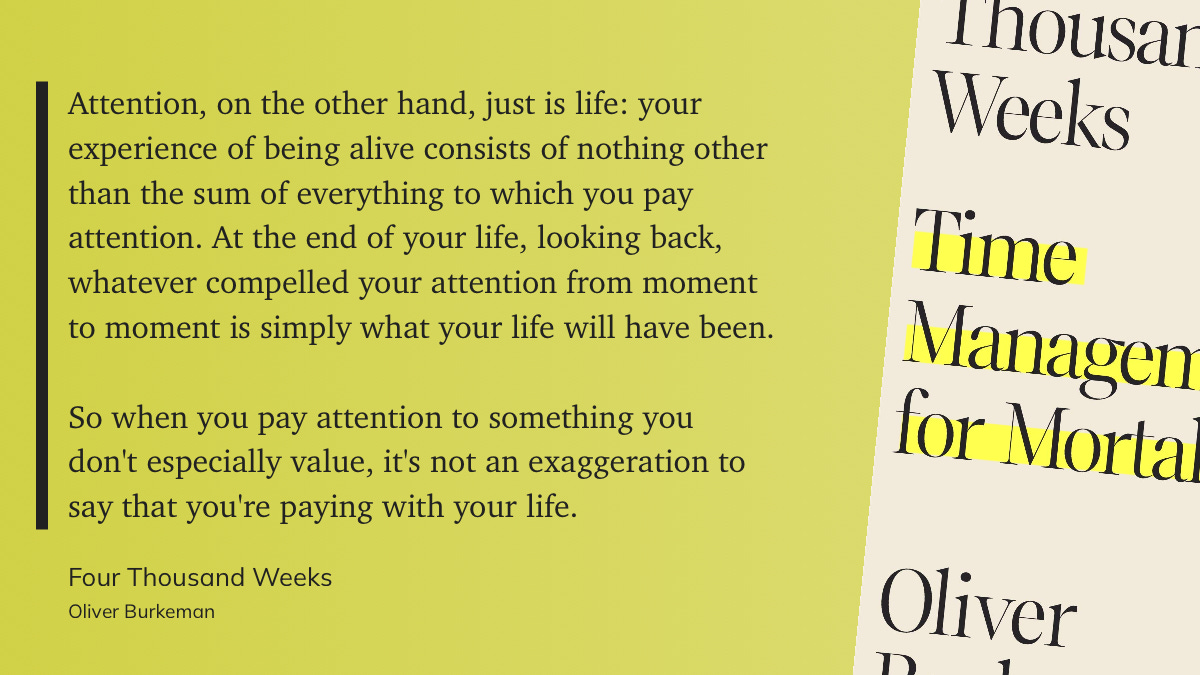
So instead of constantly trying to optimize every minute or keep up with infinite tasks, we should ask: What is worth my attention?
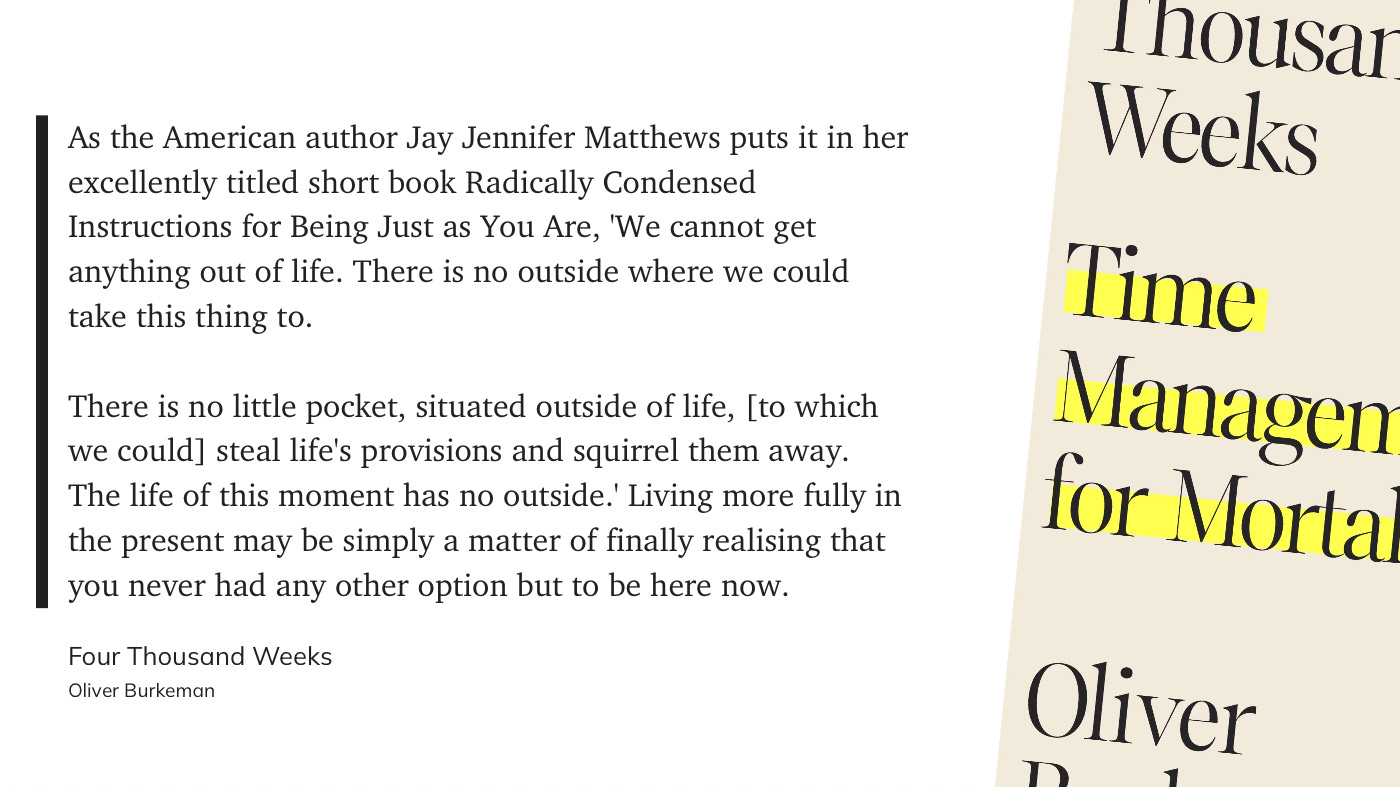
Four Thousand Weeks is a powerful reminder that our time is not a resource to conquer, but a reality to accept. When we do, we might stop measuring our worth by how many tasks we complete and start focusing on how fully we live.
If you’re ready to rethink how you manage your limited time and reclaim a life that truly fulfills you, these insights might just be some of the most important pieces of advice you’ll ever encounter in your life.
Before I close, here are two final insights that left an impression on me:
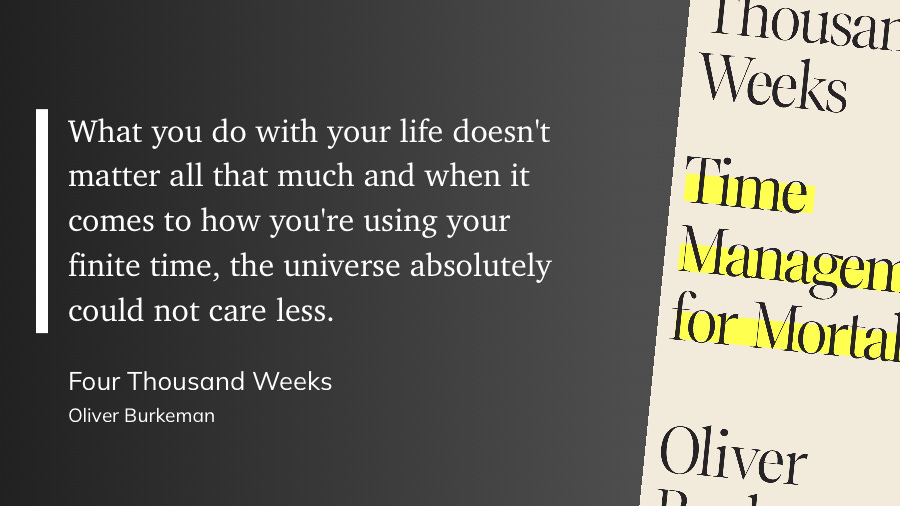
This quote may sound harsh, but it’s liberating. It reminds us that much of the pressure we feel to accomplish extraordinary things is self-imposed, or socially constructed. The universe is indifferent. This can be frightening at first, but ultimately, it frees us to choose meaning on our own terms.
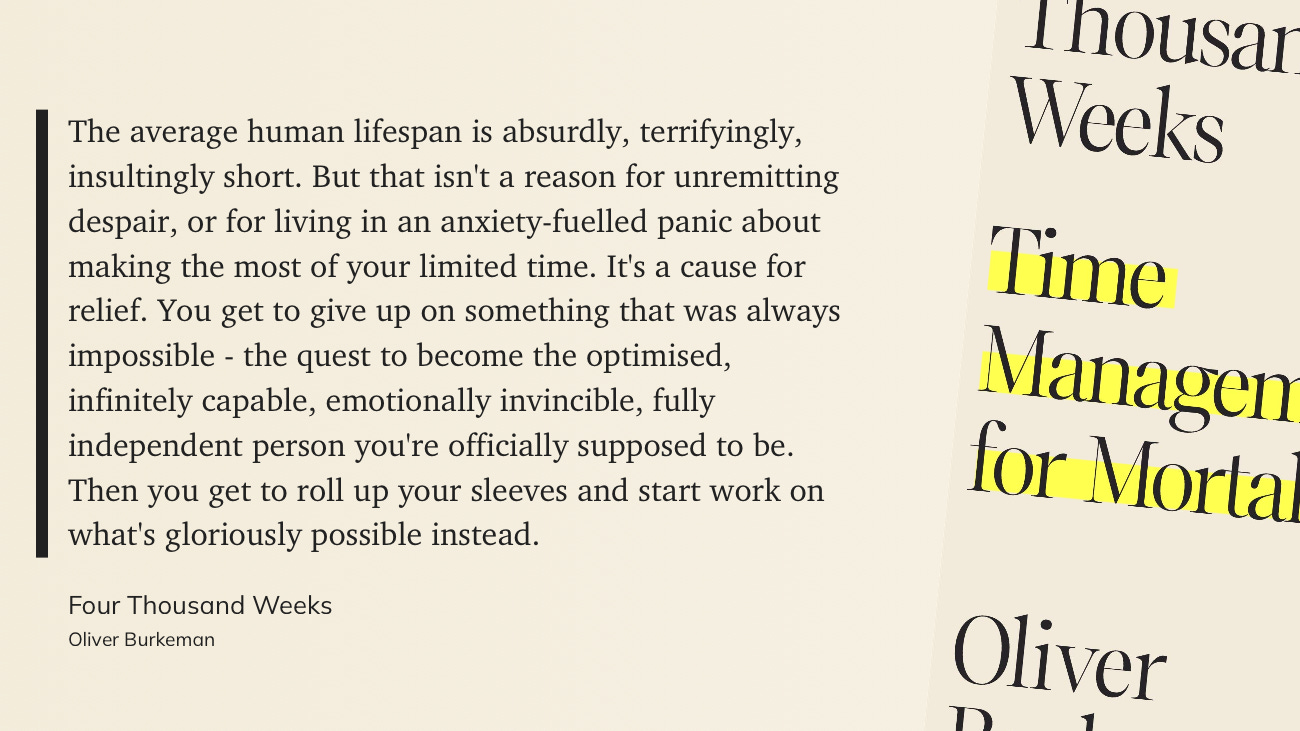
This is one of Burkeman’s most hopeful messages: once we accept that the quest for perfection is impossible, we can get to work on what is gloriously possible instead.
Letting go of the unrealistic vision of being a hyper-productive superhuman can be the beginning of a more grounded, joyful life.
– Dirk




